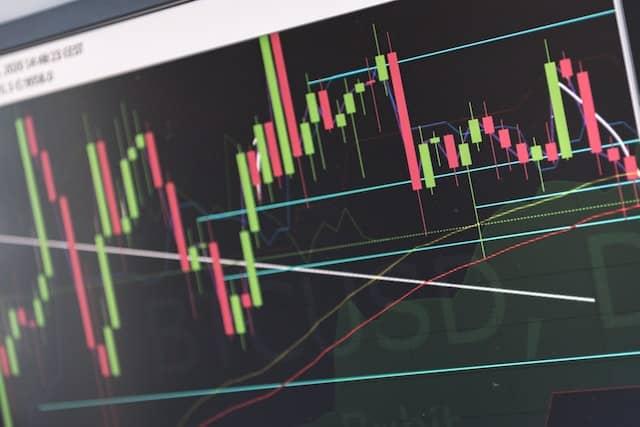Keep This Important Marketing Principle in Mind During Economic Volatility

You can tell a lot about an organization by how it responds to a crisis.
Recent years have brought no small amount of economic instability, prompting business leaders to find ways to adapt. But not every response has proven wise. This post will examine these missteps and explore an important marketing principle for your business.
The most important principle
Every organization will react to change a bit differently. When it comes to marketing, there are three broad camps businesses often fall into during a period of economic volatility:
- Businesses that don’t change anything
- Businesses that jump to conclusions and make big changes quickly
- Businesses that keep a very close eye and ear out for how their market is evolving
Which of these describes your business? Hopefully, you recognize that the third camp is the best one to be in.
This is where the most important marketing principle surfaces: Everything is constantly changing, especially now, and it might not matter. Only when you keep this principle in mind can you hope to avoid the missteps of the first two camps and maximize your effectiveness in the third.
1. Businesses that don’t change anything
Some businesses don’t change at all when things become tumultuous. Instead, leaders at these companies generally think that the problems they’re focusing on will stay intact, as should their annual or quarterly plan. However, this response fails to adapt not only to changing economic conditions but also to changing consumer preferences.
Just think about businesses that have come and gone over the years.
The Blackberry mobile phone had become a status symbol after its release in 1998, but the company failed to adapt to the touchscreen technology that rapidly increased in popularity after the release of the iPhone. By 2017, the company was officially out of the smartphone business altogether.
Don’t be a Blackberry. Closely examine consumer and industry trends, and find ways to adequately adapt to new technologies and markets. Doing so can make you more resilient and may even keep your brand in front of your target market.
2. Businesses that jump to conclusions too quickly
If one extreme is to avoid adopting and adapting, the other is to change too much, too fast. Some businesses shift gears to new strategies that often don’t match the tried and true methods that gave the organization its original success.
For example, the Covid-19 pandemic shifted consumer behavior in dramatic ways. Not only were consumers less likely to go out shopping, but the era of telecommuting brought a decline in the demand for business attire that has persisted even in the aftermath of the global shutdown.
But imagine if a business had pivoted too quickly and drastically during this period by eliminating business casualwear and focusing on athletic apparel. That company would miss a golden opportunity once workers returned to the office.
Change can either be a necessity or a distraction. Some trends simply won’t impact your customer base, while others can take years to take root. Still others may be seasonal and won’t require a long-term adjustment. Business leadership requires you to know what, when and how much to change.
3. Businesses that monitor how their market is evolving
The ancient Greeks were onto something when they observed that “nothing is constant but change.” Business owners should recognize that change is as much a part of the economy as the current is to a river.
How, then, should business owners respond? The most important thing to do is keep a close watch over what’s going on around you. This will allow you to make well-informed business decisions instead of simply reacting to the latest news.
Here are some specific tips on how to navigate today’s economy while avoiding the missteps outlined above.
Evaluate how your baseline assumptions might have changed
Sometimes, your marketing plan can be based on baseline assumptions that you might need to reevaluate in light of economic change.
For instance, your marketing strategy may be based on the assumption that your retail space will see a lot more foot traffic because you’re selling a hot new item. But is that assumption still true in light of today’s economic climate?
Chances are that this assumption has shifted for your customer base. Now that inflation has become a household word, many American consumers are cutting back on discretionary spending to focus on the “must-haves.”
You can adapt your marketing strategy by emphasizing how your products satisfy a real-world need rather than simply offering a selection of luxury items. And if your store isn’t seeing the kind of foot traffic you envisioned, you might consider switching more to digital marketing and cultivating a stronger online presence.
Avoiding distraction
Recent economic ups and downs don’t necessarily mean you have to make sweeping changes to your marketing strategy. It could be that your current strategy is working just fine, with little to no indication that things will be different in the near future.
There’s a lot to be said for sticking to what works. After all, it may be easy to scroll through the doom and gloom of the economic news cycle and contemplate ways to adapt. But if you don’t stick to your principles, you’ll only find yourself reacting to the play-by-play.
In other words, if it ain’t broke, don’t fix it. Changing for the sake of change can only be a distraction.
It distracts you because it may pull your attention away from the more important areas of your business. But it can also be a distraction to your customer base, who may already associate your brand with a particular voice or customer experience.
Avoid distractions whenever possible. Trust your instincts, rely on your marketing data and stay the course until you have a valid reason to make a strategic adjustment.
Stay flexible
By the same token, it’s important to be flexible. Staying the same can actually be riskier than changing, especially if your marketing data is pushing you toward an evolution.
Remember Xerox? At one point, the company was so big that its name had become a verb: to “Xerox” something meant to make a photocopy, which was its primary focus. It also invented the computer mouse, as well as aspects of desktop computing later applied by Apple and Microsoft.
However, as the digital revolution progressed, the company’s controllers made a critical error. They believed the digital transformation would prove too costly for the company’s target market, so it maintained its focus on copy machines.
Although the company still exists, it’s now a print and digital document management business, not that era-defining company it once was decades ago.
Staying true to your original vision sounds noble, but it may prove foolish. Be willing to adjust your marketing strategy so you can continue to position (and reposition) your brand based on changing trends. Only then can you remain truly resilient.
The power of staying informed
Entrepreneurship is a high-wire act. Lean too far to the side of change and you could destabilize the business model that made you successful; lean too far toward remaining the same and you could fail to adapt to changing circumstances.
Staying informed about the economy can make you a better business operator, as well as a better marketer.
Stay true to your core values, but be willing to adapt your marketing plan to shifts brought on by the ever-changing economy. Making this a habit will empower your business to be healthier and more profitable than you ever dreamed.
Thanks for reading! Do you want to create thought leadership articles like the one above? If you struggle to translate your ideas into content that will help build credibility and influence others, sign up to get John’s latest online course “Writing From Your Voice” here.



